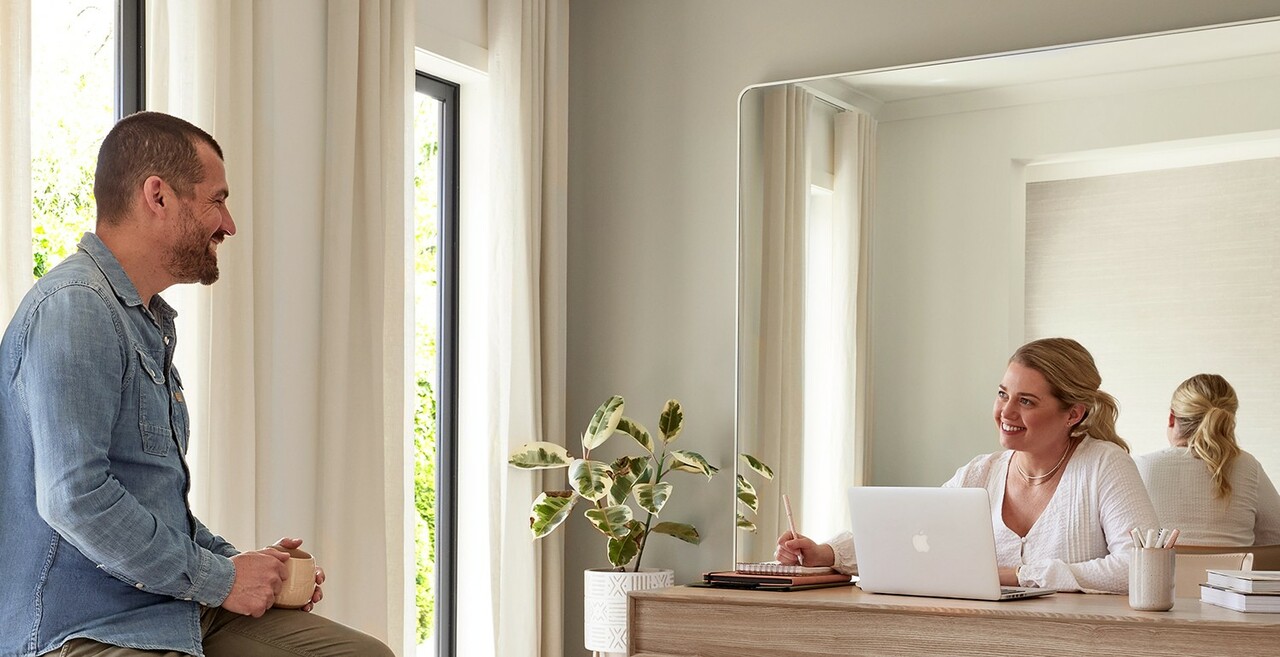Should You Invest Your Savings?

Essential Guide: here’s what to do with your savings!
Gone are the days of stashing your money under the mattress. But are the days of stashing it in a savings account close behind? With the cash rate remaining at a rock bottom 0.10%, savings accounts aren’t what they used to be. Instead, consider alternatives for investing savings and getting that first home deposit faster.
Here are the three main pathways to consider.

Savings accounts are a low-risk, go-to option for savers, but make sure you’re getting the most out of your chosen bank, like spending trackers and bonus rates!
1. Savings accounts
Keeping your money in a savings account has always been the lowest risk, lowest maintenance option. Just set up an automatic transfer so a proportion of your income goes straight to savings, set and forget. Most banks today also offer extra features, such as spending trackers and goal-setting capabilities, to encourage you to save more.
ADI-licenced banks are backed by the government’s Financial Claims Guarantee, so even if the bank goes bust, your money is protected up to $250,000.
However, in the current environment, investing savings in a savings account can actually lose you money. Currently, savings accounts yield between 0.1% and 1.35% per annum, with the highest rates only available to savers who can deposit a minimum amount per month. Meanwhile, the consumer price index (CPI) rose 3.5% in the last year. You might make an extra $100 on a $10,000 savings deposit, but the real value of that $10,000 has declined by more than $100 in the same time period.
If you do want to go down this route, look for a savings account that offers bonus rates. These are higher rates that are conditional on a minimum deposit per month. This can encourage saving behaviours.
Explore 20 quick tips to save money here.

Have savings and are unsure how to invest? EFTs are usually passive investments and are more likely to produce superior results over a longer period. Featured here: Montpellier Grand, Smiths Lane Estate, Clyde North.
2. Investments
In the current environment, many Australians who would ordinarily have put money into savings accounts have looked at investing their savings instead.
If you’re a beginner, the idea of investing can seem daunting. All investments carry a level of risk, and some are riskier than others. It’s important to do some research before starting out.
One option that a lot of beginners choose is to invest in exchange-traded funds (EFTs). These are managed funds that you can buy or sell on an exchange, such as the Australian Securities Exchange (ASX) or the S&P 500.
The advantage of an EFT is that they are usually passive investments with a fund manager. You don’t have to monitor rises and falls in the stock market unless you want to, and you don’t have to try and outperform the market.
For more information, visit the ASX website here, for a list of ETFs you can invest in. Please remember that investments always carry a level of risk, and you should get professional advice if you are unsure.
Thinking of investing your tax rebate, learn how it could help your savings here.

Soon-to-be first home buyer? If you’re looking for somewhere to invest your savings safely and wisely, the First Home Super Saver Scheme could be your answer.
3. First Home Super Saver Scheme
If savings accounts lose you money, and investments carry too much risk, what’s a would-be home buyer to do? The First Home Super Saver Scheme (FHSS) may be the answer.
The FHSS has been available since 1 July 2017 and has seen the caps increase substantially since then. It is designed to provide would-be first home buyers with tax incentives to make saving easier.
Eligible individuals can make voluntary concessional (before-tax) and/or voluntary non-concessional (after-tax) contributions into your superannuation fund. Once you are ready to buy or build a house, you can apply to access those voluntary contributions and use them towards the deposit.
Currently, you can apply to use up to $15,000 per financial year, up to a total of $30,000 across all years.
You’re eligible if:
- You’re a first home buyer;
- The property you intend to buy will be owner-occupied as soon as practicable (in the instance that you’re purchasing a house and land package, for example, you obviously can’t occupy the home until it is completed); and
- You intend to occupy the property for at least six of the first 12 months after it becomes practical to move in.
Money held in a superannuation account is taxed at 15%, which is lower than the income tax you’ll pay on standard earnings. The higher your tax rate, the more you’ll save.
You can also withdraw the earnings on your contributions, so if you’ve contributed $10,000 and it has earned $500,000 in interest, you’ll get the benefit of that increase. If your super fund performs poorly, you’re also protected: the Government allows users of the scheme to calculate earnings on a ‘deemed earning rate’. This is based on the shortfall interest charge – currently, 3.04%, which is substantially more than the interest offered in a savings account.
While the FHSS is very low risk, there is some paperwork involved. You must apply for, and have granted, a determination from the ATO to release the funds. This is usually a straightforward process, but you’ll need to allow for the time when negotiating settlement time frames.
Before you make any decision about the best way to approach investing your savings, speak to a financial advisor or other finance professional.
Learn more about new government schemes and how they could help first home buyers here.
For more information about the FHSS, head to the ATO website. If you’re ready to buy, find out more about buying the house and land package that suits your budget by calling Carlisle Homes friendly consultants on 1300 328 045.
